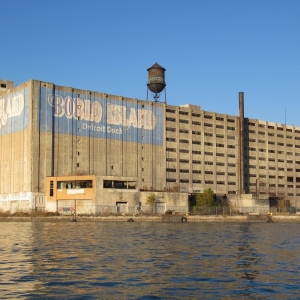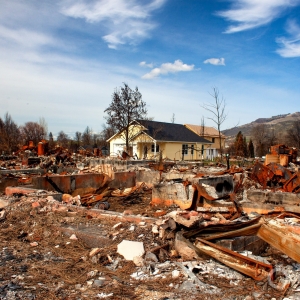The Stream, July 2, 2021: Midwestern Farmers Aren’t Planting Enough Cover Crops To Mitigate Runoff
YOUR GLOBAL RUNDOWN
- Farmers in the U.S. Midwest aren’t planting crops to mitigate fertilizer runoff, despite federal funding for the plants known as “cover crops.”
- In U.S. drought news, San Diego officials declare the city “drought proof;” President Joe Biden holds a meeting with governors to discuss wildfire risk; and reports of water misuse in a Utah city are rising.
- Thousands of residents in an Indian village have been without clean water for nearly half a century.
- The fate of a mining project in Arizona that environmentalists have opposed due to concerns over groundwater contamination is in the hands of the EPA.
A new report out of Australia outlines the devastation that climate change could bring to the country’s land and water ecosystems.
“It’s clear that climate change is already happening and having impacts.” – David Karoly, the leader of the Earth Systems Hub in Australia. A new report from the federal agency found that even if greenhouse gases in the atmosphere stabilize, climate change will drastically alter Australia’s environment. According to the Sydney Morning Herald, the report warned that impacts from climate change will include the drying of tropical rainforests, and more frequent and intense heat waves and floods. Climate change has already contributed to environmental damage, including intense bushfires over the past 70 years and the warming of the Tasman Sea, the report said.
IN RECENT WATER NEWS
Detroit Flooding Previews Risks from a Warming Climate
Six inches of rain battered the Detroit metro area last weekend, a deluge that overwhelmed the region’s drainage system. Hundreds of basements flooded, cars floated on freeways, and the usually-packed Interstate 94 looked more like a river than a roadway. While the worst of that storm system is likely over, the city is still bracing for more rain later this week.
The Detroit cloudburst was the result of a nasty weather combination—a cold front sweeping across the Midwest, plus a mass of humidity hanging over the city—which promises to be all the more powerful as the climate continues to warm.
It’s hard to pin individual storms on climate change, but the science is clear that atmospheric warming leads to more events like last weekend’s rainfall. This has serious effects for stormwater infrastructure, as drainage systems are developed based on precise risk assessments. City leaders build systems that can handle a certain range of rainfall, accepting the risk that extreme events might occasionally exceed that threshold. But because of climate change, the risk assessments that were used to build these structures might not hold for much longer.
In Case You Missed It:
In Chicago, Flooding Overwhelmingly Strikes Communities of Color – Chicago’s leaders have poured billions into ambitious programs to keep water away from roads and buildings. But urban flooding continues – overwhelmingly in communities of color – forcing experts to turn to new solutions.
HotSpots H2O: Anishinaabe Activists and Allies Resist Enbridge Line 3 Pipeline, a Project that Threatens Wetlands and Ignores Treaty Territory – In northern Minnesota, the new Line 3 corridor cuts directly through wetlands and waterways that are already struggling in unusually dry conditions. The pipeline also infringes upon centuries-old tribal treaty rights, and runs near, and sometimes through, reservation lines, water crossings, and state forests.
Drought in the American West
Your need-to-know drought coverage for the week.
San Diego Officials Praise The City’s “Drought Proof” Status
The city of San Diego, California, has managed to avoid water shortages that plague the rest of the state, largely due to billions spent on securing more supplies and building water infrastructure. Voice of San Diego reports that since the 1980s, San Diego has diversified its source of water supply and stored water for emergencies. These efforts, along with voluntary conservation efforts from individuals throughout the city, prompted San Diego officials to declare themselves “drought proof.”
Biden Holds Meeting With Western Governors To Discuss Wildfire Risk
President Joe Biden said that the United States was “playing catch up” in its preparedness for wildfires during a meeting with governors from western states, Reuters reports. As wildfires are becoming more frequent and dangerous in the American West, the U.S. Forest Service and the Bureau of Land Management face staffing shortages due to low pay and competition from state and local fire departments. During the meeting, Biden promised to increase the wages of firefighters, who are currently paid $13 an hour.
Reports of Water Misuse Rise As Drought Deepens in Utah
Matt Haack, the water conservation coordinator in Ogden, Utah, told the Associated Press that complaints of water misuse have surpassed 200 since the city declared a water shortage on June 4. The calls are typically to report excessive lawn watering, which is prohibited during the hottest hours of the day. Brady Herd, the Ogden public utilities manager, said the city is focused on education and providing residents with information, so no fines have been issued thus far.
TODAY’S TOP WATER STORIES, TOLD IN NUMBERS
6,000 RESIDENTS
More than 6,000 residents in the Bhullan village in the Indian state of Punjab have not had access to clean water for more than 40 years, the Hindustan Times reports. Without help from state governments, villagers are forced to gather water from the Bhakra Canal that passes through the village. Tests have shown that the levels of total dissolved solids in the village’s groundwater supply are much higher than safe limits for human health.
3.2 MILLION ACRES
Despite millions of dollars in federal funds, farmers across the Upper Midwestern Corn Belt in the United States aren’t planting cover crops, which can help trap carbon in soil and have been praised as a way to prevent fertilizer from running off into waterways. Inside Climate News reports that a 2019 analysis found that of the 68 million acres of corn and soybean planted, only 3.2 million acres were planted as cover crops. Now, a growing number of bipartisan legislators and the Biden administration are backing bills designed to help farmers participate in carbon-offset markets.
- Why it matters: Water pollution from agricultural runoff is dividing small communities across the United States. In Gratiot County, Michigan, farms housing thousands of animals are one of several sources contaminating the Pine River. Local environmentalists say it has been too easy for locals, government officials, and polluters to turn a blind eye.
ON THE RADAR
The U.S. Environmental Protection Agency will decide whether to approve or deny a plan from the Canadian firm Taseko Mines Ltd to use situ leaching to extract copper in Arizona. Situ leaching, a process that evokes oilfield fracking, has been used by uranium miners in rural parts of Australia and the United States, but has rarely been used to extract copper.
Reuters reports that the mine faced local pushback for years due to concerns of groundwater contamination and damage to historical sites. The decision now lies in the hands of the EPA, which said it plans to decide before September.
Jane is a Communications Associate for Circle of Blue. She writes The Stream and has covered domestic and international water issues for Circle of Blue. She is a recent graduate of Grand Valley State University, where she studied Multimedia Journalism and Women, Gender and Sexuality Studies. During her time at Grand Valley, she was the host of the Community Service Learning Center podcast Be the Change. Currently based in Grand Rapids, Michigan, Jane enjoys listening to music, reading and spending time outdoors.







Leave a Reply
Want to join the discussion?Feel free to contribute!